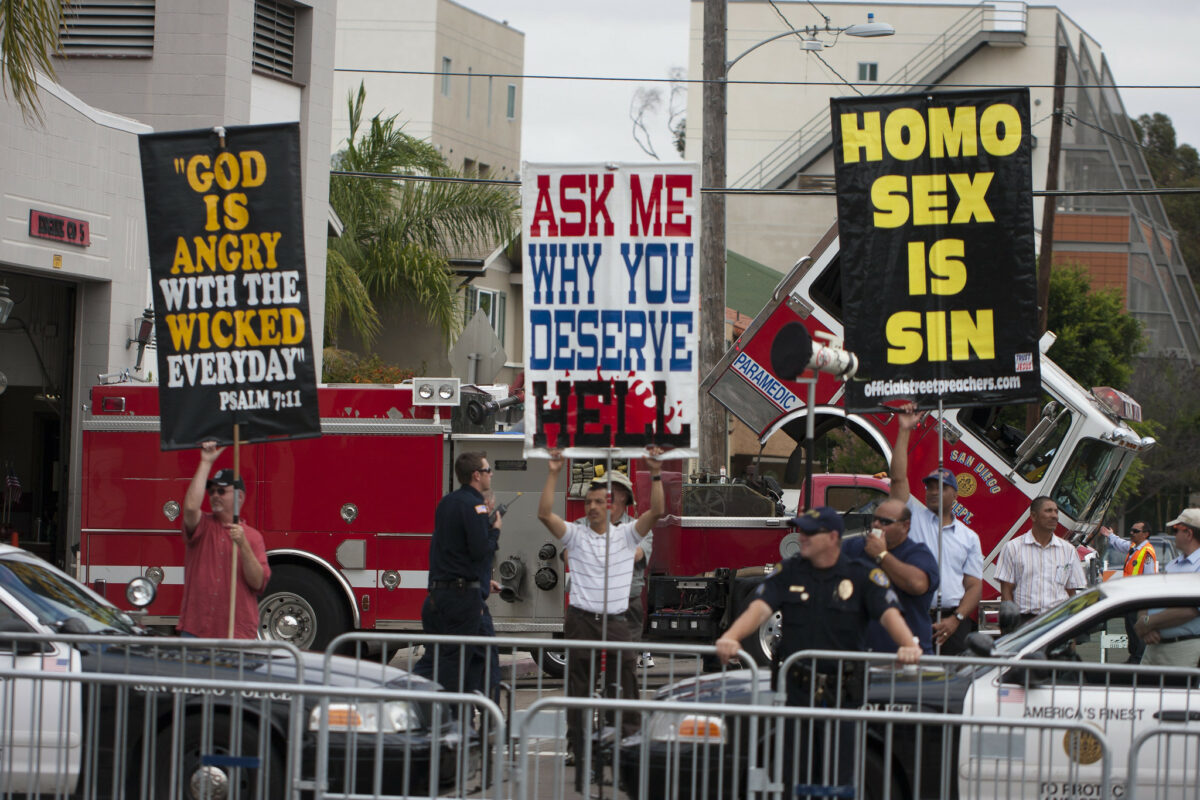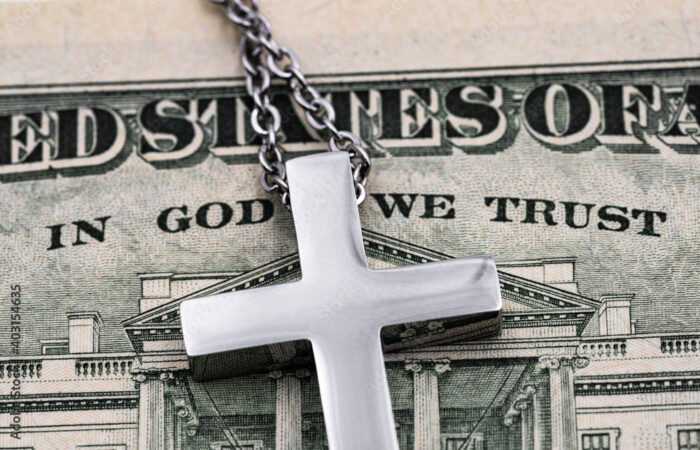As any American progressive with right-wing relatives will know, conservatives love bragging about how they give more to charity than those to their political left. One of my uncles in particular used to relish throwing this fact in my face at family gatherings. Looking back, I wish my younger self had understood the realities of American non-profits the way I do now, so I could have come up with better retorts.
In the UK, as I recently learned while reading about Mermaids’ challenge to the anti-trans LGB Alliance’s legal status as a charity, organizations wishing to be recognized as charities undergo real scrutiny (even if, as in this case, the system sometimes fails). But in the US, having a hateful raison d’être is no barrier to gaining charitable status. Quite the opposite. In this land of opportunity, a hate group can quite easily register as a charity – and even a church (!), thereby escaping even the minimal financial oversight required of secular charities – on the flimsiest of grounds.
As a result, far from promoting any equitable notion of the common good, a great deal of tax-deductible American ‘charitable’ giving funds hateful and discriminatory initiatives that cause significant harm, both at home and abroad. And since the only transparency most Americans have probably encountered is the kind that goes on an overhead projector (look it up, Zoomers), much of that funding is unaccountable dark money.
The primary vehicle for obscuring this dark money’s provenance is known as a donor-advised fund (DAF). According to an exclusive investigation by openDemocracy based on more than 15,000 pages of financial reports, between 2017 and 2020 DAFs channeled $272m from anonymous American donors to organizations including “at least two US groups linked to the political organizing in Uganda that preceded its brutal ‘kill the gays’ law, as well as groups that have argued for the statutory castration of transgender people in Europe and been implicated in anti-LGBTIQ ‘conversion therapy’ even in US states where the practice is restricted.”
I’ve written about DAFs before, and it seems wherever they come up, so does the anti-LGBTIQ hate group Alliance Defending Freedom (ADF). The ADF is infamous for its role in the Masterpiece Cakeshop case that ended with the US Supreme Court granting right-wing Christian bakers the right to refuse to bake wedding cakes for same-sex couples on the basis of their religious beliefs.
Along with Liberty Counsel, Family Research Council and Family Watch International, ADF is one of four Southern Poverty Law Center-designated anti-LGBTIQ hate groups that collectively received $113m from DAFs over the period studied by openDemocracy’s journalists. Of these groups, Family Watch International and its leader Sharon Slater are known to have played an active role in advocating for banning comprehensive sex education and curtailing LGBTIQ rights in Uganda.
When Uganda’s first unsuccessful attempt at passing ‘kill the gays’ legislation made US headlines in 2009, the media, rightly, pointed fingers at individual American pastors (including Rick Warren, Lou Engle and Scott Lively) and influencers who spread rabid homophobia in the country, effectively exporting the US culture wars at a time when the Christian right seemed to be losing the fight to curtail LGBTIQ rights here at home.
Tracing the networks and international influence of individual hateful actors is critically important, and sometimes criticism gets results. In the case of the first ‘kill the gays’ bill, for example, reporting on Warren’s role eventually prompted the bestselling author and megachurch pastor to condemn the bill as going too far. In the current situation, public pressure forced Family Watch International to claim that Slater asked Ugandan President Yoweri Museveni to “soften” the bill if he planned on signing it into law.
But the public faces of international hate projects, even when the media bother to make them known, are at most half the story. They couldn’t do what they do without funding, and when the donors who fund these projects are able to remain unknown they escape the kind of public outrage that might lead them to change or moderate their behaviour.
That is, of course, how the megadonors who fund hate prefer things, and because the US is a place where enough money can buy all kinds of things – including cozy relationships with right-wing Supreme Court justices – the likelihood that this will change any time soon is minimal. But if there is any possibility of ever closing the outrageous legal loophole that allows the ultra-wealthy to fund anti-rights efforts with no transparency or scrutiny, we must make the wider public more aware of the situation.
Greater awareness would lay the foundation on which to build an effective movement for more transparency in this and other areas (not least with respect to the above-mentioned Supreme Court, whose justices are currently allowed to operate with no external enforcement of professional ethics whatsoever).
The oligarchic enemies of democracy and human rights know their bigotry is unpopular with most Americans. If we want to gain the opportunity to hold them accountable for the harm they do with their checkbooks, we must apply sustained public pressure on our political representatives for as long as it takes to achieve reform.

